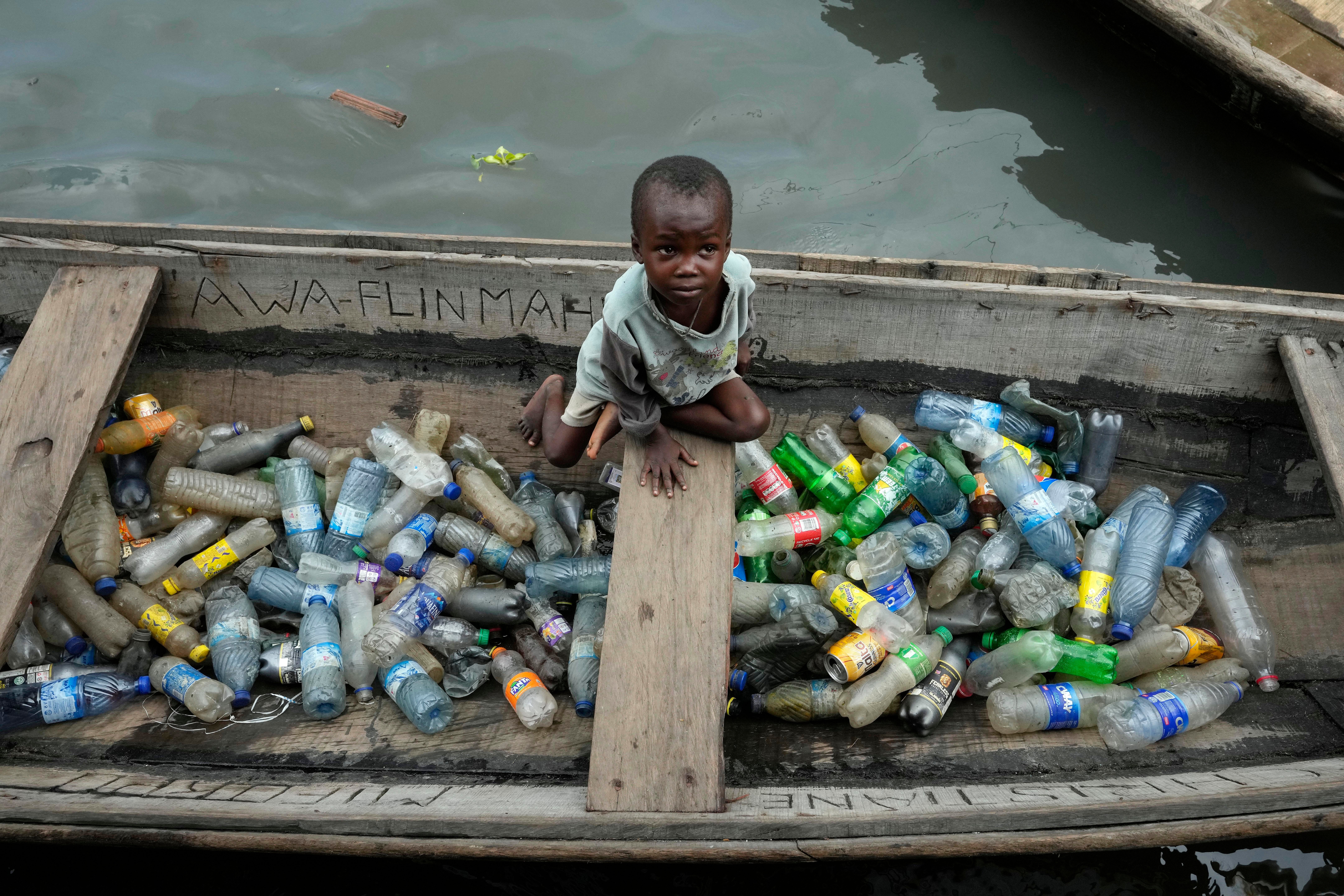A trillion dollars is a small price for the damage wealthy nations have done to our planet
Editorial: The ‘bill’ represents a tiny proportion of the riches the industrialised world has generated over the centuries, causing lasting harm to ecosystems and livelihoods

On the principle that the polluters pay, the rich industrialised world has got off lightly for its crimes against the planet. One of the more controversial items on the United Nations Cop27 summit agenda is the bill for “loss and damage” to the environment of the many poorer countries now critically affected by climate change.
A sum of $1 trillion (a thousand billion dollars) has been suggested as a global total by the UN, in the way of recompense, and to pay for ameliorative and adaptive measures to cope with continuing environmental degradation.
Cue the outrage from the rich world. It’s perfectly true that $1 trillion is a great deal of money in anyone’s language, and especially at a time of distinct economic distress and exceptional pressure on the poor of the rich nations.
However, that $1 trillion must be put into the context of the total annual GDP of the G20 richest countries, at $75 trillion, and whatever unimaginable sum has been generated in the industrialised powers since Britain unchained Prometheus in the 18th century.
It’s also worth mentioning, in passing, that Europe, North America and Japan also made much profit from colonialism and slavery along the way, at the expense of many of those smaller nations now seeking their own path to development even as the climate moves against their efforts.
So the “bill” for loss and damage represents a tiny proportion of the riches the industrialised world has generated over the centuries, sometimes through violent exploitation, but at any rate causing lasting harm to ecosystems and livelihoods, which is still being inflicted at a dangerous rate. Indeed, the UN even goes so far as to make the transition easier – some $290bn to $580bn annually, building up to $1 trillion by 2050.
If the rich nations, including those more recent economic superpowers India and China, wish to minimise their contributions and ensure their teeming populations can survive into the next century, then they will need to show more serious intent about cutting greenhouse gas emissions. The argument has been won and almost every government has accepted the scientific evidence of manmade climate change.
Yet the gap remains between understanding the problem and doing much about it. For once, Boris Johnson, freelancing at Cop27, is right to remind anyone still listening to him that humanity does indeed hold in its hands the technological means to prevent an even greater catastrophe overtaking every country and every citizen of the world, rich or poor.
It is still not too late to “save 1.5C” and prevent global warming exceeding 1.5C compared with pre-industrial levels, but the Ukraine war and its aftermath demonstrate how easily immediate political and economic pressures can leave mankind reaching again for the syringe full of hydrocarbons.
For all the progress made on renewable, green, economical energy, when things get tough we can see just how addicted people are to fossil fuels. Throughout the recent energy crisis in the West, the talk is of fracking, of new gas and oil fields, of extracting every last clump of coal from the ground as the quickest, easiest fix – even when it is no such thing.
By burning more fossil fuels the world is, as UN secretary general Antonio Guterres points out, putting its foot down, almost literally, on the highway to climate hell.
To keep up to speed with all the latest opinions and comment, sign up to our free weekly Voices Dispatches newsletter by clicking here
Cop27 in Sharm el-Sheikh is derided as a bunch of wealthy, privileged hypocrites flying in on private jets to tell the poor of the world to stay poor. It is an arresting propaganda image, yet the truth remains that the poorest of the world have had the least to gain from fossil-fuelled industrialisation, and are the most exposed to continuing climate change.
In places such as Somalia, Pakistan, Mauritius and Tuvalu, climate change is a killer. It helps reduce harvests, causes shortages of water and food, provokes wars, and pushes emigration northwards, to the dismay of richer nations.
It is in the interests of the whole world to slow the catastrophe, and one way of doing so is by having the grace to face diplomacy in forums such as Cop meetings, even if not everyone who should attend shows up. Rishi Sunak was right to change his mind and take a lead on the world stage.
In other words, processes such as Cop, slow and flawed as they are, are pretty much all the planet has got. Good luck to the negotiators.






Join our commenting forum
Join thought-provoking conversations, follow other Independent readers and see their replies
Comments